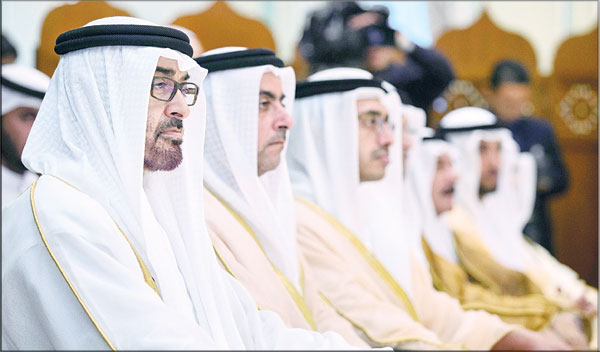The United Arab Emirates monitors and restricts Muslim activity while tolerating largely the people of other faiths in the country, the Washington Post reported.
The U.S. newspaper said in a report that the UAE’s control over Islam extends deeper into the daily life of Muslims. The government chooses and scrutinized all imams and provides them with weekly instructions for Friday prayer sermons, and even the informal practices of Islamic learning must be approved by the government.
The newspaper pointed out that the UAE considers the Islamic movements as the main threat to its political system and national security, especially in the wake of the Arab Spring revolutions in 2011.
The state uses anti-terrorism laws to hurt dissidents while banning the Muslim Brotherhood, the largest and most well-organized political Islamist movement in the Middle East, the newspaper said.
The newspaper described the restrictions on Muslims in the UAE, saying that opening a Koranic school, organizing a lecture, collecting donations or distributing books in mosques can only be obtained with a government license. The law also prohibits imams from preaching and teaching religious lessons outside mosques.
According to the Washington Post, the UAE is tolerant of major Christian, Hindu and New Year celebrations, as well as advertisements and propaganda for non-Muslim religious activities.
According to the Wall Street Journal, there are more than 700 Christian gatherings, but the number of officially approved church buildings across the country is only 45.
The Washington Post reported that religious minorities are not allowed to own the land, making it difficult to build houses of worship but not impossible. Several religious groups have been granted land by government officials, but the expansion of non-Muslim houses of worship is under scrutiny.
There are laws prohibiting the construction of bell towers and the display of religious symbols such as crosses, but a report by the U.S. State Department noted that such laws are not strictly enforced.
The newspaper said that the UAE Constitution provides freedom of worship as long as it does not conflict with public policy or public morals, describing it as ambiguous and gives the government-wide space to explain acceptable forms of worship.
The newspaper pointed out that the Pope’s visit to the UAE is the first visit by a Pope to the Arabian Peninsula.



